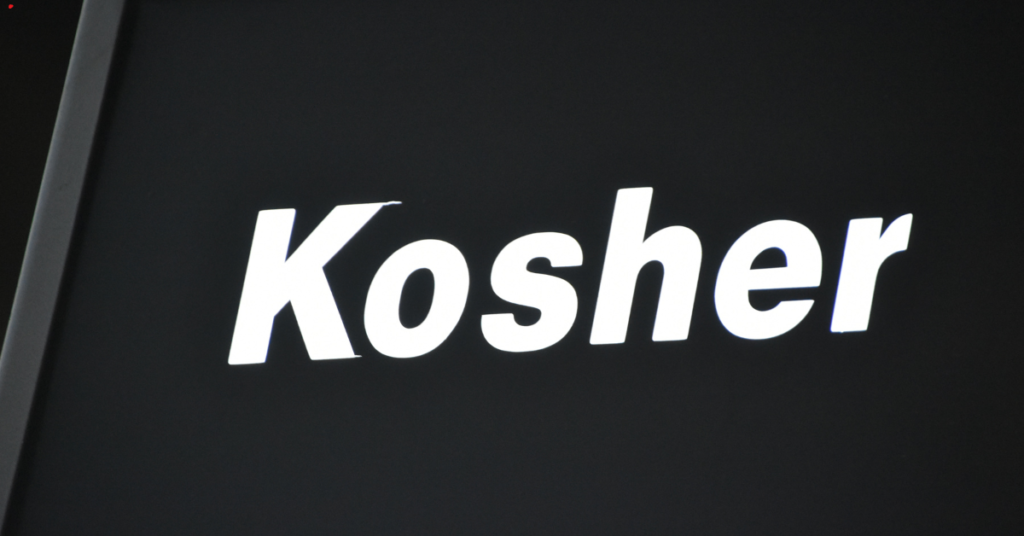Food and product labels can say a lot. Some show if something is gluten-free, vegan, or organic. Others, like Kosher, follow specific food laws based on faith and long-standing practice. For many shoppers, seeing a Kosher label means more than just food rules—it means trust, care, and clear standards.

What Is Kosher Certification?
Kosher certification is a process that checks whether food, drinks, or other products meet the rules of Kosher law. These rules include how food is made, what ingredients are used, and how equipment is cleaned. Once all these steps pass, the product can be Kosher certified.
This process helps people who follow Kosher diets know what they can eat or use. It also helps others feel more confident in how clean and carefully the product is handled.
Why Businesses Choose to Get Certified
Getting certified brings value. Many food makers, shops, and factories now look into Kosher certification, not just for religious reasons, but for a wider market. People who keep Kosher will only buy certified items, and that means companies can reach more buyers with the right approval.
Some customers also see the label as a sign of quality control. They may not keep Kosher, but they believe a certified product was made with more care. It becomes part of the product’s value, which helps it stand out in a busy store.
How the Certification Process Works
When a business applies for certification, they often go through a long checklist. A Kosher certification agency sends someone to look at the factory, kitchen, or plant. This person checks ingredients, tools, and how the food is made.
Once everything meets the standards, that product or location gets the approval. This may take time and regular visits, but it helps keep the quality stable. The same checks apply to packaged food, drinks, and even cleaning supplies.
Growth of Kosher Certification in South Africa
Over the past few years, more local companies have joined the process. The demand for Kosher certification in South Africa keeps growing as more businesses realise what it can offer. Whether it’s snacks, meat, or fresh produce, many stores now have full Kosher shelves or even full Kosher sections.
From home kitchens to large-scale producers, people want clear steps and rules to follow. A Kosher certification agency in South Africa can help with these needs, offering support, advice, and checks.
This growth also links to exports. Companies sending goods overseas may need certification to reach certain stores or clients. It’s not just about local buyers anymore—it’s about bigger markets.
What a Kosher Agency Checks For
A Kosher agency follows strict rules. It checks for things like:
- Whether ingredients are allowed under Kosher law
- If meat and dairy are kept apart
- How shared tools are washed
- If the cooking times and methods follow the rules
- Whether any hidden items in flavourings or blends are a problem
These checks protect the people who rely on Kosher standards for daily use. The agency helps both buyers and producers keep things clear.
Why It’s Not Just About Food
Some people think Kosher only applies to what you eat, but that’s not true. Many other products also need to be checked. For example, foil, soap, and even machines that touch food must follow the rules in some cases. A company that makes one type of food might have to check every step of the process, from storage to packaging.
In some places, even restaurants or food trucks can ask to be certified. This gives customers peace of mind and builds trust over time. People are more likely to return to places that take these rules seriously.
Keeping the Certification
Once a product or place is approved, the work isn’t over. Checks need to be done again every so often. Ingredients might change. New staff might need training. A good agency helps the business stay on track and keeps everything in line.
This keeps the public safe and keeps the Kosher label strong.
Conclusion
Getting certified is not only about labels. It’s about trust, safety, and doing things the right way. Whether it’s for large food brands or small kitchens, Kosher rules bring a clear system that many people follow every day.
From factories to farms, a clear process led by a trusted Kosher certification agency helps make that possible. As demand continues to grow, especially for Kosher certification in South Africa, more products will likely carry this label—bringing confidence to customers and clarity to the people who make them.